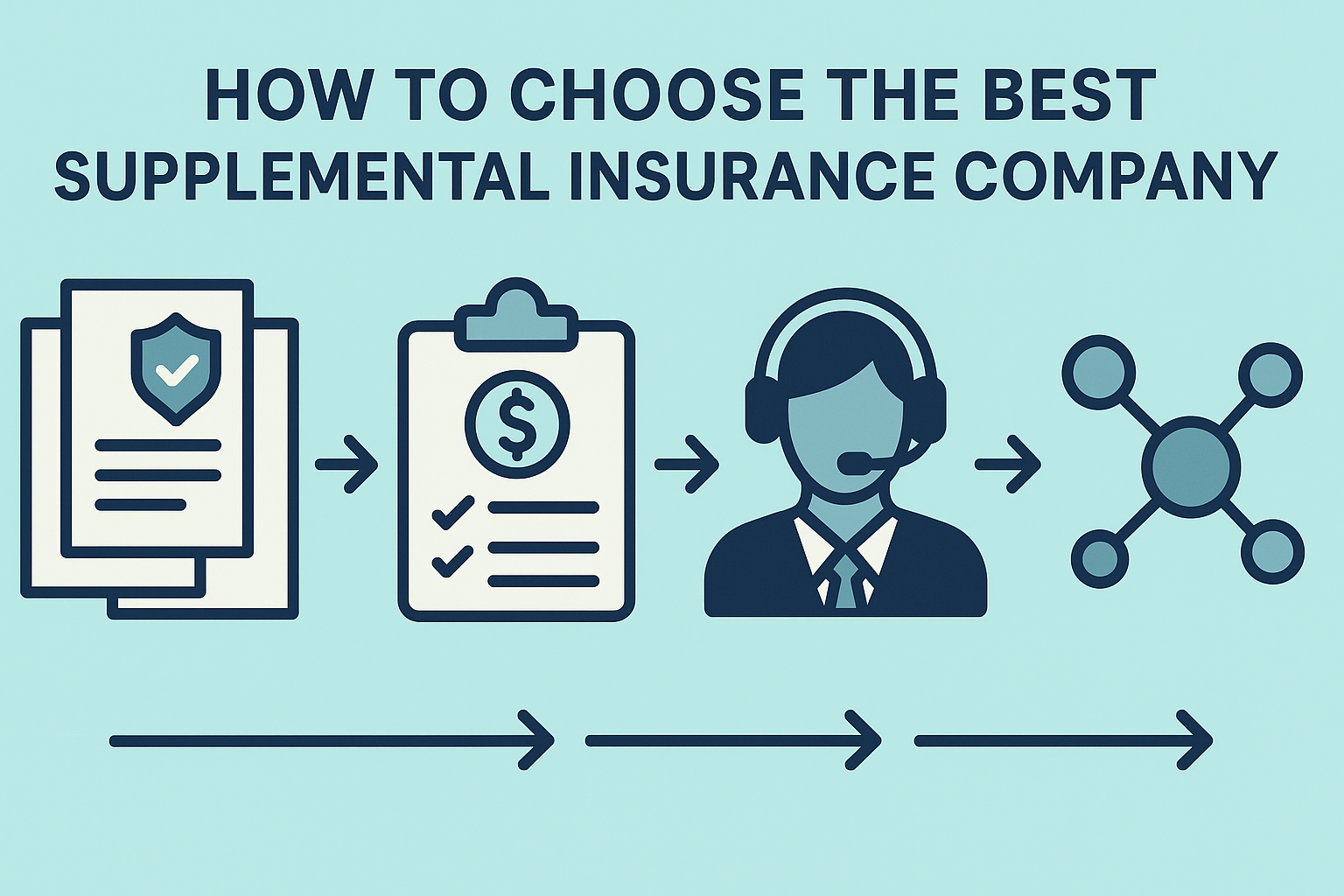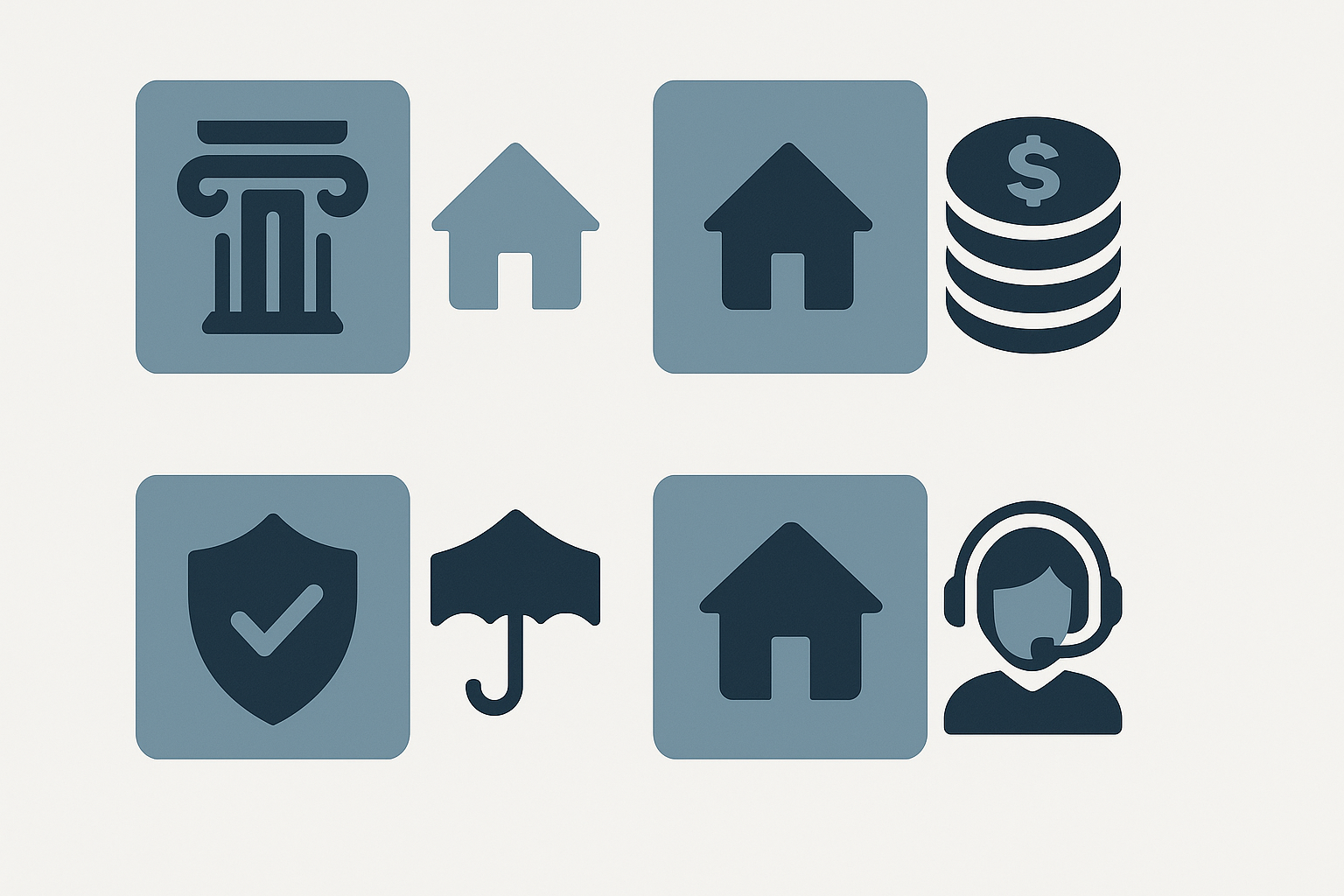Navigating the world of retirement planning can be complex, especially when it comes to securing reliable healthcare coverage. For many retirees, Medicare alone may not be sufficient to cover all medical expenses, which is why exploring the 10 best supplemental insurance companies becomes crucial. These companies not only help bridge the gaps left by Medicare but also provide peace of mind with comprehensive plans that ensure you are well-covered during your golden years.
Choosing the right supplemental insurance plan can make a substantial difference in your financial stability and healthcare access. This guide will explore the top companies that offer exceptional coverage, customer service, and affordability, all while focusing on your healthcare needs in retirement. By understanding the strengths and unique offerings of these top-rated companies, you can make an informed decision that best fits your lifestyle and budget.
You may also like: 10 Powerful Reasons to Retire Early and Transform Your Financial Future

Why Supplemental Insurance is Essential for Retirement
As you transition into retirement, managing healthcare costs becomes a critical part of maintaining financial security. While Medicare is designed to cover a substantial portion of your medical expenses, it doesn’t cover everything. Gaps in Medicare include costs like copayments, coinsurance, and deductibles, which can quickly add up and strain your retirement savings. This is where supplemental insurance steps in to provide the additional coverage you need.
Supplemental insurance, often referred to as Medigap, is designed to fill those gaps left by Medicare. It helps cover out-of-pocket expenses that would otherwise come directly from your savings. With the right policy, you can avoid unexpected medical costs and secure your financial stability throughout your retirement years.
Furthermore, the best supplemental health insurance plans often include benefits that go beyond basic Medicare coverage. Some policies provide access to international healthcare, while others offer perks like gym memberships and wellness programs. Selecting from the best rated Medicare supplement plans ensures that you not only have coverage for medical emergencies but also access to preventive care and health management options that enhance your quality of life.

How to Choose the Best Supplemental Insurance Company
Choosing the right supplemental insurance company involves understanding your health needs and evaluating the options available. With numerous providers offering a variety of plans, it’s important to compare features, costs, and customer service ratings. The following factors are crucial when deciding on the best Medicare supplement policy:
- Coverage Options: Some companies offer more extensive plans that include vision, dental, and even long-term care. Understanding what each plan covers is key to ensuring your medical needs are met.
- Cost and Affordability: Monthly premiums can vary widely between companies. It’s essential to evaluate not just the upfront costs but also potential out-of-pocket expenses.
- Customer Service and Support: A company’s reputation for handling claims efficiently and providing excellent customer service can significantly impact your experience.
- Network Flexibility: Some plans allow you to visit any doctor that accepts Medicare, while others require you to stay within a specific network of providers.
- Financial Stability of the Provider: The financial health of the insurance company is important to ensure it can meet its obligations when you need coverage.
By evaluating these factors, you can confidently select from the best secondary health insurance providers that will keep you covered during retirement.

The 10 Best Supplemental Insurance Companies for Retirement Security
To help you make an informed decision, we’ve compiled a list of the 10 best supplemental insurance companies that excel in coverage, affordability, and customer satisfaction. Each of these companies has been evaluated based on its offerings, financial stability, and customer reviews to ensure you are getting the best possible options for your healthcare needs in retirement.
- AARP/UnitedHealthcare – Known for its extensive network and strong customer service, AARP offers some of the most comprehensive Medicare supplement policies available.
- Mutual of Omaha – Offers competitive pricing and flexible plans, making it a favorite among retirees seeking reliable supplemental coverage.
- Humana – Provides affordable plans with extra benefits like vision and dental, along with wellness programs.
- Cigna – A trusted name with global reach, offering diverse plan options and a strong customer support system.
- Blue Cross Blue Shield – Highly rated for its expansive network and variety of plan options tailored for seniors.
- Anthem – Offers solid Medicare supplement plans with competitive pricing and exceptional customer service.
- United American – Known for its simplified claims process and strong financial backing.
- Manhattan Life – Provides unique plan options that cater specifically to retirees with chronic conditions.
- Bankers Life – Specializes in senior-focused insurance products, with robust Medicare supplement offerings.
- Transamerica – Known for its reliability and commitment to customer satisfaction, with a range of customizable plans.
Each of these companies brings unique strengths to the table, making them the top choices for those looking for supplemental insurance coverage in their retirement years.

In-Depth Analysis of the 10 Best Supplemental Insurance Companies
Anthem
Anthem is known for its competitive pricing and strong network of healthcare providers. Its Medicare supplement plans are designed to provide seamless access to medical services across the United States. Anthem also offers multiple plan options, allowing retirees to select the level of coverage that best fits their health needs and budget.
One standout feature of Anthem is its commitment to preventive care. Policyholders have access to wellness programs that encourage proactive health management, which helps reduce long-term medical costs. Anthem’s robust online platform also allows for easy claims submission and management, enhancing the user experience for retirees seeking efficiency and reliability.
United American
United American is a well-regarded name in the insurance industry, known for its simplified claims process and exceptional customer support. Its Medicare supplement plans are straightforward, focusing on covering the essential gaps left by Medicare. United American is particularly favored for its transparent pricing and minimal rate increases over time.
The company also prides itself on its strong financial stability, ensuring that policyholders can count on their coverage when they need it most. With a reputation for clear communication and a hassle-free claims process, United American is an excellent choice for retirees seeking reliable and uncomplicated supplemental insurance.

Frequently Asked Questions About the 10 Best Supplemental Insurance Companies
1. What Are the 10 Best Supplemental Insurance Companies for Retirement?
The 10 best supplemental insurance companies for retirement are those that excel in providing comprehensive coverage, affordability, and exceptional customer service. These companies include AARP/UnitedHealthcare, Mutual of Omaha, Humana, Cigna, Blue Cross Blue Shield, Anthem, United American, Manhattan Life, Bankers Life, and Transamerica. Each of these providers is known for its reliability and the quality of its Medicare supplement policies. When selecting the best company for your needs, it’s crucial to consider factors like financial stability, network coverage, and plan flexibility. These companies have been evaluated for their ability to cover out-of-pocket expenses that Medicare does not, ensuring greater financial security during retirement.
2. How Do I Choose the Best Medicare Supplement Policy?
Selecting the best Medicare supplement policy depends on your individual health needs, budget, and preferred level of coverage. Begin by evaluating what gaps in Medicare you need to fill, such as copayments, coinsurance, or deductibles. Consider plans like Medigap Plan G or Plan N, which are popular for their extensive coverage options. Comparing the pricing and benefits of multiple providers is essential, as costs and included services can vary significantly. Also, look into each company’s reputation for customer service and ease of claims processing, as these factors greatly impact your experience.
3. What Makes Medigap Plan G the Best Medicare Supplement Policy for Many Seniors?
Best Plan G Medicare supplement policies are favored by many seniors due to their comprehensive coverage. Plan G covers almost all the gaps left by Original Medicare, except for the Medicare Part B deductible. This means lower out-of-pocket costs for hospital stays, skilled nursing facilities, and medical expenses. Many seniors appreciate the predictability of their medical expenses with Plan G, as it covers excess charges and foreign travel emergencies. Its widespread acceptance among healthcare providers also makes it a flexible choice for those who travel frequently or live in multiple states throughout the year.
4. How Do Supplemental Health Plans for Seniors Differ from Traditional Health Insurance?
Supplemental health plans for seniors are designed specifically to fill the gaps left by Original Medicare. While traditional health insurance generally provides primary coverage for medical visits, hospital stays, and prescription medications, supplemental plans like Medigap focus on covering out-of-pocket expenses. These include copayments, coinsurance, and deductibles that can become burdensome over time. Additionally, some supplemental plans offer benefits like foreign travel emergency coverage and preventive care programs. Seniors often find that combining a strong Medicare supplement with their existing Medicare coverage reduces unexpected medical expenses and provides greater financial peace of mind.
5. Are Secondary Health Insurance Plans the Same as Supplemental Insurance?
While the terms are sometimes used interchangeably, secondary health insurance plans and supplemental insurance plans have distinct purposes. Secondary insurance usually serves as backup coverage when primary insurance does not cover the full cost of a medical service. In contrast, supplemental insurance is specifically designed to fill the gaps left by Medicare, covering costs like deductibles, copayments, and coinsurance. However, some plans, like those offered by the 10 best supplemental insurance companies, can function as both supplemental and secondary insurance, depending on your healthcare needs. It’s important to understand the specific terms of each plan to make the best choice for your health and finances.
6. What Are the Benefits of Choosing One of the Top 10 Medicare Supplement Insurance Companies?
Selecting a provider from the top 10 Medicare supplement insurance companies offers several benefits, including financial stability, wide network access, and exceptional customer service. These companies are leaders in the industry, known for their comprehensive coverage options and reliable claims processing. Choosing from this list ensures that your healthcare needs will be met with high standards of service and strong financial backing. Furthermore, many of these top providers also offer perks like gym memberships, wellness programs, and international emergency care. This added value makes them ideal for retirees looking for robust and worry-free medical coverage.
7. What Should I Look for When Comparing the Best Rated Medigap Plans?
When comparing the best rated Medigap plans, it’s important to assess the coverage, cost, and flexibility of each plan. Evaluate whether the plan covers major gaps in Medicare, such as copayments, coinsurance, and deductibles. Also, consider the stability of the premiums over time, as rate increases can affect long-term affordability. Network size is another crucial factor; the best plans allow you to visit any provider that accepts Medicare, giving you greater freedom in your healthcare choices. Finally, look at the company’s customer service reputation to ensure smooth claims processing and support when you need it.
8. How Do Supplemental Medical Insurance Plans Handle Claims?
Supplemental medical insurance plans generally handle claims efficiently, with many providers offering digital submission and tracking. Claims are typically processed after Medicare has paid its portion, reducing paperwork for policyholders. Top companies, like those among the 10 best supplemental insurance companies, have streamlined systems that allow for rapid claim resolution and transparent communication. This means retirees can focus on their health rather than paperwork. Many providers also offer online portals for easy access to claim information and support.
9. Can I Change My Supplemental Health Insurance Coverage If My Needs Change?
Yes, you can change your supplemental health insurance coverage if your needs evolve. Many providers allow policyholders to upgrade or switch plans during specific enrollment periods, such as the annual Medicare Open Enrollment. If your health status changes or you require more comprehensive coverage, you can explore different plan options that better match your new circumstances. It’s important to consult with your provider about eligibility and potential underwriting requirements if switching outside the designated enrollment periods. Understanding these options ensures you maintain adequate coverage as your health needs change over time.
10. Are Supplemental Insurance Companies Regulated by the Government?
Yes, supplemental insurance companies are regulated both federally and at the state level. Medicare supplement plans, also known as Medigap, are standardized by the federal government to ensure consistency across providers. This means that a Plan G from one provider offers the same basic benefits as a Plan G from another provider, regardless of price differences. State regulations also govern pricing, premium increases, and consumer protection standards to safeguard policyholders. This regulatory oversight ensures that the best supplemental health insurance options maintain quality and reliability across the board.
Conclusion: Making the Right Choice for Your Retirement
Choosing the right supplemental insurance is a critical aspect of retirement planning. With the rising costs of healthcare, ensuring you have coverage that meets your needs is vital for peace of mind and financial security. The 10 best supplemental insurance companies highlighted in this guide offer diverse options tailored to different medical and financial needs, ensuring that retirees can select the plan that best fits their lifestyle.
Whether you prioritize expansive coverage, competitive pricing, or exceptional customer service, there is a provider on this list that aligns with your goals. By understanding the strengths and unique offerings of each company, you can confidently navigate the complexities of Medicare and supplemental insurance. Investing in the right plan today secures not just your health, but your financial future in retirement.
As you evaluate your options, consider the factors that matter most to you: cost, flexibility, customer support, and network coverage. These considerations will help you find the optimal plan that bridges the gaps left by Medicare, ensuring a comfortable and worry-free retirement. With informed decision-making, you can step into your golden years with confidence and security.





